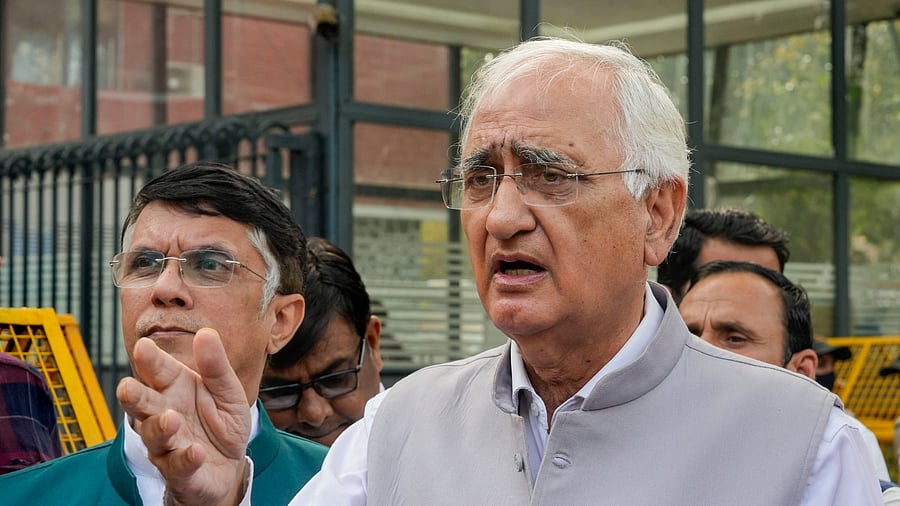
Congress leaders Salman Khurshid and Pawan Khera speaks to the media after a meeting with ECI ahead of Lok Sabha polls, at Nirvachan Sadan in New Delhi, Tuesday, April 2, 2024.
Credit: PTI File Photo
New Delhi: “Should I touch your feet to persuade you to initiate steps for an alliance against the BJP that will benefit you rather than any other person” – this was what JD(U) chief Nitish Kumar, who would later jump out of the Opposition coalition, said in a meeting with top Congress leaders Mallikarjun Kharge and Rahul Gandhi in April 2023.
This exchange finds mention in a new book Contesting Democratic Deficit: An Inside Story of 2024 Elections by senior Congress leader Salman Khurshid and PhD scholar Mrityunjay Singh Yadav, which provides an insider view of how Congress and the Opposition fought the 2024 elections.
The meeting on April 12, 2023 at Kharge’s residence was the first concrete interaction of Opposition leaders that set in motion structured meetings that eventually led to the formation of the I.N.D.I.A. bloc. Nitish was invited to Delhi after he referred to the procrastination of a decision on alliance at a CPI(ML)L meeting in Khurshid’s presence.
As the meeting at Kharge’s residence began, Khurshid, who was present during the deliberations, recalls that the conversation was “a bit frosty to begin with” and Nitish minced no words when he said crucial time had been lost in the three months since the matter was first broached.
“Yet there was a studied silence. He (Nitish) suddenly changed track and asked if he should ‘touch the feet of our leaders’ to persuade them to take the step that would inevitably benefit them rather than any other person. And then everything changed. Rahul spoke of the need to meet at length, perhaps for several days, to work out the contours of the alliance,” the book says.
“But Nitish was a man in a hurry. He offered to speak to Mamata Banerjee, Akhilesh Yadav and even Arvind Kejriwal, leaving Sharad Pawar and DMK to the Congress. His statement got him a carte blanche, including the AAP. It looked as though we were in business. Events moved so fast that the usual insiders were left to send text messages quizzing about the details,” it says.
The book goes on to say that Nitish appeared anxious about being appointed the Convenor of the alliance and it reached a point that he dissociated himself from it. Later, he left the alliance for the BJP-led NDA.
The book also goes on to say that I.N.D.I.A. was envisioned as a formidable Opposition to the BJP, but its execution in key states like Haryana, Maharashtra and Delhi “exposed several strategic missteps”.
During Maharashtra Assembly elections, it says, Samajwadi Party sought five seats but was allotted only two seats while leaving the remaining seats for friendly fights. “This decision, rather than fostering unity, created friction, as the alliance failed to present a united front,” it says.
SP sought one seat in Haryana but “local dynamics” forced the Congress to field Vinesh Phogat in Julena. Things could have been coordinated better and allies accommodated in a manner that maximised electoral gains, it said.
For the I.N.D.I.A. bloc to be “truly effective”, the book says, it must learn from these mistakes and should prioritise unity, strategic planning and a more proactive approach to safeguarding the electoral process.
